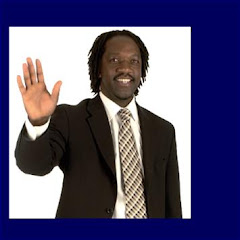"Jack Ashley turned his own tragic experience of losing his hearing into a mission of courage and determination for deaf and disabled people. He was a pioneer as the first deaf MP to sit in Parliament, but he did much more than that.
"There are many millions of men and women with disabilities who will have better lives thanks to Jack Ashley. He succeeded in changing the law and in changing attitudes.
"Anti-discrimination legislation for people with disabilities would not have happened when it did without his tenacity, his campaigning and his support.
"Jack Ashley will be missed by his family, his friends and his colleagues in the House of Lords. He led an amazing life and will be remembered with deep affection, profound respect and great admiration."
David Cameron described Lord Ashley as a "tireless" campaigner for disabled people who had a huge impact not just through his charity work, and legislation, but also in changing attitudes.
The prime minister said: "It takes characters like Jack, with his extraordinary tenacity, to push for that kind of positive change. He will be sorely missed and my thoughts and prayers are with his family."
Lord Morris of Manchester, a fellow Labour peer of Lord Ashley's, who collaborated with him when campaigning for disability rights, also paid tribute to his colleague and long-standing friend.
"Jack and I lived in close fellowship for over five decades. We campaigned and legislated together on improving the wellbeing of disabled people and others in special need," Lord Morris said.
"His passing will be mourned by everyone who had the privilege of knowing him. He was a very fine parliamentarian."
Prime Minister David Cameron said: "He was a tireless campaigner for disabled people and had a huge impact, not just through his charity work and pushing for legislation in Parliament, but also in changing attitudes.
"It takes characters like Jack, with his extraordinary tenacity, to push for that kind of positive change. He will be sorely missed and my thoughts and prayers are with his family."
Former Home Secretary David Blunkett, who is blind, said: "Jack Ashley was a pioneer who set aside his disability and by doing so forged a path which others, including me, have been able to follow.
"By sheer tenacity and latterly the use of technology, he was able to demonstrate that not only could he work on equal terms but achieve a great deal more than most of us in politics are able to boast about."
Former-prime minister Gordon Brown added: "Jack Ashley was the greatest champion Britain's disabled have had.
"He was compassionate, direct, forceful and radical. The man who, speaking with the authority of personal experience, took the cause of disabled men and women into the chambers of Parliament and to the heart of government.
"He leaves behind a contribution in legislation and policy progress for the cause of tackling disability that will not easily be surpassed."
In his autobiography, Lord Ashley recalled that the last voice he heard was that of the late rugby commentator Eddie Waring.
He became profoundly deaf a year after his election to parliament at the age of 45 following an operation to correct mild hearing loss.
After initially fearing he would be forced to give up politics, the MP learned to lip-read.
Other politicians, including political foes such as Prime Minister Edward Heath, turned towards him during Commons debates so he could get a clear view of their mouths.
Lord Ashley also worked hard to modulate his speaking voice, which he could no longer hear.
However, his deafness never affected his combative attitude.
“Early on when I first lost my hearing, I think people were a little fearful about attacking me. But as I re-established my confidence, that soon fell away,” he said.In the years that followed, he campaigned for the rights of those with disability, in particular for the deaf and blind.
In 1986, the MP and his wife founded the charity Defeating Deafness, now known as Deafness Research UK.
Together the couple had three daughters.
After retiring from the Commons in 1992, Jack Ashley was made a life peer, Baron Ashley of Stoke.
Two years later he received a cochlear implant which restored much of his hearing.
Lord Ashley took a leading role campaigning on behalf of victims of Thalidomide, which was given to mothers to treat morning sickness during the 1950s and 1960, and against violence and rape.
In 2003 he secured changes to improve the provision of subtitles on television. In 2006, he championed a bill to strengthen the rights of the elderly and disabled.
Until his death, Lord Ashley was President of Action on Hearing Loss, formerly the Royal National Institute for the Deaf.
He was also Vice-President of the National Deaf Children’s Society with whom he worked for many years to champion the rights of deaf children.
Susan Daniels, the charity's chief executive, said: “Lord Ashley was a passionate advocate for deaf and disabled people, securing important victories for them in parliament and working tirelessly to ensure that they had a voice at the highest levels."
Lord Ashley worked in a factory after leaving school at 14, becoming a shop steward and a local councillor.
He studied at Oxford and Cambridge on scholarships, and worked as a producer for the BBC before entering parliament.





